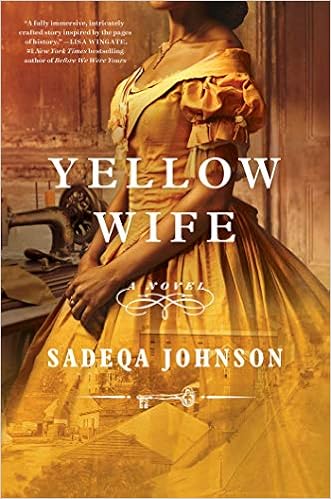3.5 Stars
For listening on my walks, historical fiction audiobooks have become my genre of choice. This is the latest and it certainly kept my interest.
The book opens on a plantation in Virginia in 1850. Pheby Delores Brown, 17, is the daughter of Ruth, a black healer, and Jacob Bell, the owner of the plantation. She has a privileged status and is even taught to read, write, and play the piano. When circumstances change on the plantation, she is sent to a slave jail in Richmond where she comes to the attention of the jail owner, Rubin Lapier. Because slave traders were considered disreputable so marriage to a white woman was impossible, Rubin chooses Pheby as his “wife” despite her already being pregnant with a child fathered by a slave on the Bell plantation. She becomes mother to several of Rubin’s children.
Pheby is the narrator and she emerges as a complex character. She is courageous, determined, and resilient. She is determined to not be a slave in her mind, and this is the message she tries to instill in her children. Being the mistress of the jail, she knows she is more fortunate than other slaves, but, to survive, she has no choice but to become complicit in the slave trade. She does, however, show care and compassion as she prepares girls for auction as “fancy girls.” Her position gives her little power against the injustices committed by Rubin. She quickly learns that she must be submissive or her son Monroe will suffer.
The novel examines motherhood, specifically what a mother will do to protect her children regardless of who their father is. She loves both Monroe and her daughters (fathered by Rubin) and wants a better life for all of them. This means that she must sacrifice and compromise. She ends up giving up so much in order to ensure that her children will be free of their backgrounds.
This book is not for the faint of heart. There are detailed descriptions of humiliations, daily cruelties, torture, and sexual abuse. Rubin’s jail is called the Devil’s Half-Acre, and he is indeed a devil, adept at both physical and psychological torture. (In the earlier part of the novel, he has a female parallel in Missus Delphina.)
One disappointment is the climax. The scene, which the reader knows is coming, is rushed, and there is little suspense. It just falls flat. On the other hand, it is appropriate that there is not a fairy tale ending either. For some, freedom is not a possibility.
Apparently, the story was inspired by a real jail and jailer’s family. It certainly does present an interesting perspective, that of an enslaved concubine.

No comments:
Post a Comment